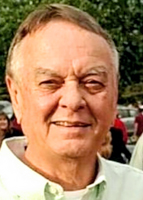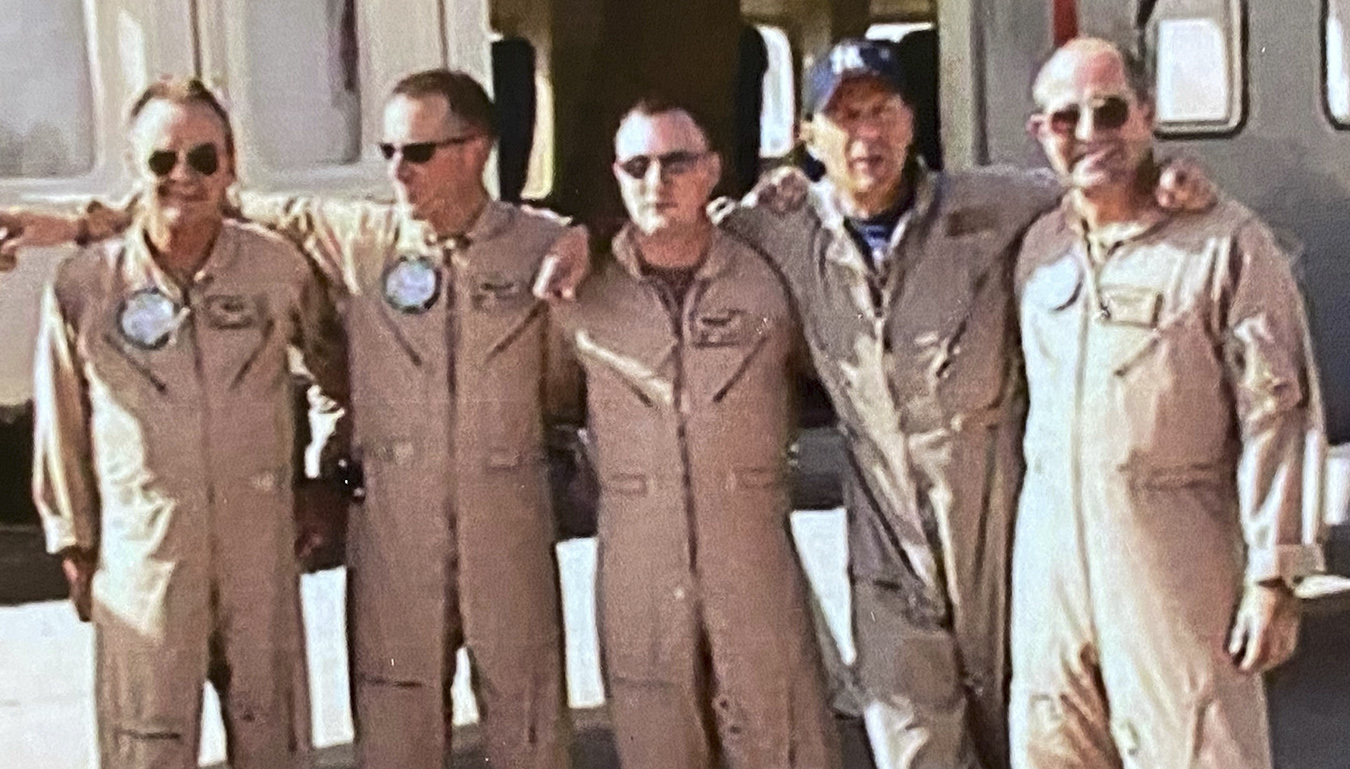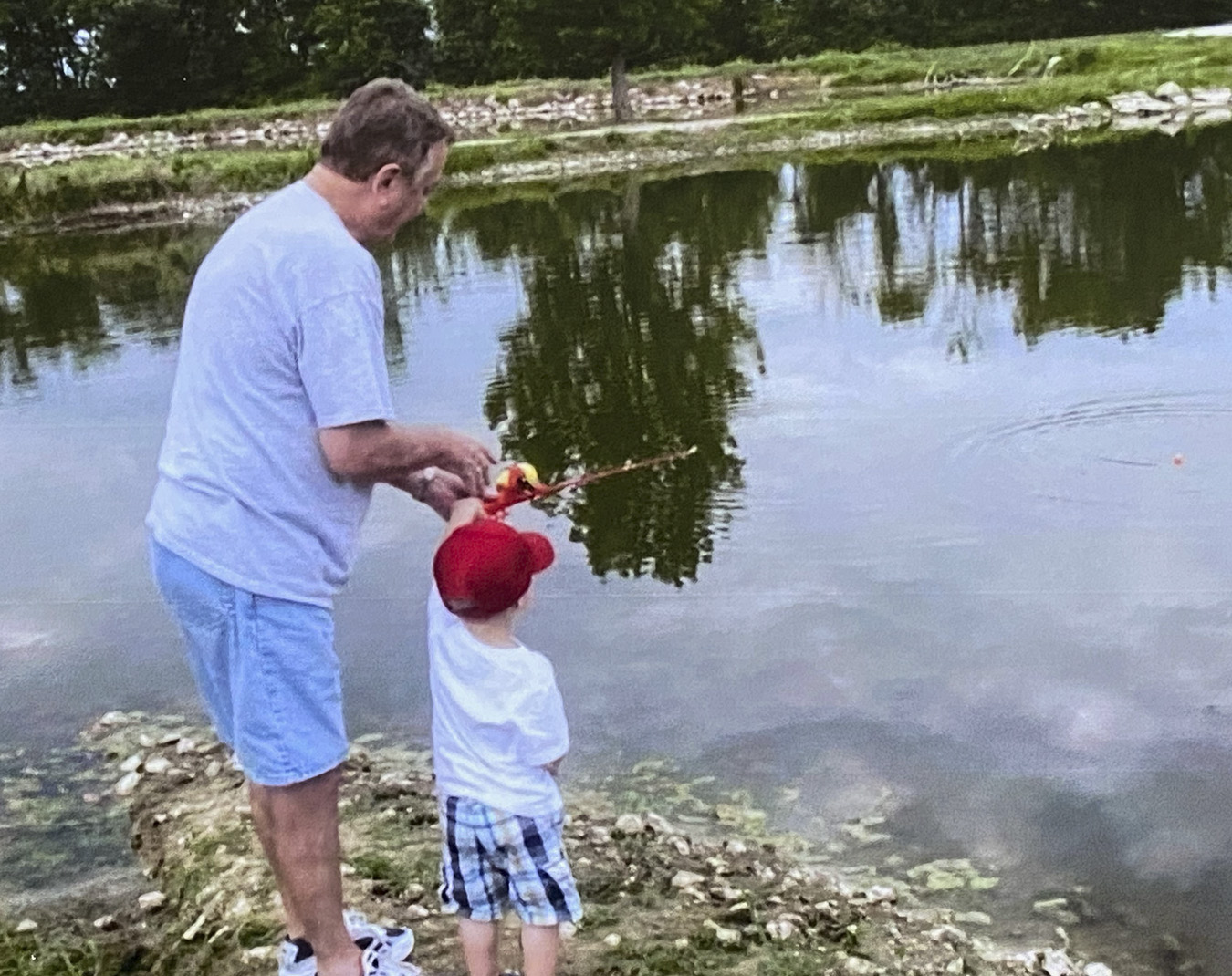Terry Batey was a bit of a rascal growing up, a dedicated patriot and skilled professional as an adult, a devoted family man and valued friend who readily shared his wit and wisdom.
So it seemed fitting, after his death on June 17 at age 75, that his formal obituary end with this heartfelt suggestion wrapped in a smile:
“In lieu of flowers, the family requests donations to the charity of the donor’s choice or (Terry’s preference) take a loved one out for a cheeseburger and enjoy your time together.”
“He did love cheeseburgers,” says Sherry Batey with a chuckle. “And he really, really loved his family.”

Sherry met Terry 28 years ago while attending a retirement party with another date — Terry’s boss. Both men were in the Missouri National Guard; Sherry’s date was a colonel, Terry was a sergeant.
“Terry ended up being the better dancer,” she recalls, “but we didn’t see each other again for a couple of months. He told me later that he kept trying to find out my number, but the guy I’d been with wouldn’t give it to him. He told Terry: ‘If I give you her number, pretty soon I’ll have to buy a wedding present, and I don’t want to do that.’”
Eventually Terry did reach Sherry — and the prediction by the colonel (who actually was a good friend to both) proved accurate. “Neither of us dated anyone else once Terry got that number. I even canceled a date I had with someone else when Terry called.”
Terry served three dozen years in the Missouri National Guard, enlisting as an aircraft mechanic, applying what he’d learned during an earlier four-year stint in the Air Force. He progressed through roles as a crew chief, loadmaster and ultimately flight engineer with a unit here that flew twin-engine aircraft — C-23 Sherpa is the military designation — in support of the AVCRAD (Aviation Classification Repair Activity Depot) operation that services Army helicopters at Springfield-Branson National Airport.
“It’s the repair and rehab center for helicopters and helicopter components from all over the U.S. but primarily from the Midwest — the Rockies to Appalachia, Mexico to Canada,” explains David Bradley, a former Sherpa pilot and close friend of Terry’s. “What we did with the C-23 was haul AVCRAD personnel out into the field to look at aircraft to decide how to proceed with them, and we hauled things like engines and rotor blades. We hauled a lot of helicopter rotor blades — we’d bring them in, the AVCRAD guys would rebuild them, and then we’d take them back.”
Bradley says that as an E-7 (sergeant first class) flight engineer, Terry’s job was to do “just about everything. He was responsible for getting whatever it was that we were hauling loaded and properly secured. He was responsible for making sure the plane was airworthy. Plus he helped run the systems during flight, everything from heat to air-conditioning to de-icing equipment. His knowledge of the plane was voluminous.”
Sherry says Terry would joke that his real job title was “GIB — Guy in Back, because he usually sat in the back of the plane while they were flying.” But Bradley says that wasn’t quite true with Terry:
“Normally the flight engineer would sit in the back when everything was calm. But during takeoffs and landings and during bad weather, there was a seat right behind the pilots where the engineer could monitor the engines and all the systems. And I was always happy when Terry was there. When he was part of the crew, it made life a lot easier for me as a pilot.
“You never had to worry about Terry not getting his job done or not doing it right. He was 100-percent reliable.”
Brother recalls a rascal in early years
That description is in some contrast to the recollections of Terry’s three-years-younger brother, Mike, who laughingly tells of misadventures when they were growing up in the family home at Lone Pine and Seminole in southeast Springfield.
“Terry often tried to get out of doing stuff,” Mike says. “I remember one time our dad, before he went to work one morning, told Terry: ‘You ARE going to cut this yard today — and if you don’t, you’ll wish you had!’ Well, Dad got off work at 4:30, and at 3:30 I said to Terry: ‘You’d better get out there — you don’t have much time left before Dad gets home.’
“So Terry goes out to the back yard. We had a nice Toro lawnmower, and Terry pours gas in it — except it overflows. I say: ‘Terry, I think you’d better wait a little bit for that spilled gas to evaporate.’ But what does he do but pull that cord — and the thing goes up in flames!
“Mom is yelling and screaming, and we’re running around the yard, trying to get the hose to use water to put out the fire, but that doesn’t work. Finally we get a blanket and smother it. And Terry tries to hide the burned-up lawnmower under a honeysuckle bush.
“He got a good paddling over that one.”
Then, Mike says, there was the Sunday School incident:
“We went to First Baptist Church, and Mom, Terry, our sister (Pat) and me were supposed to go to Sunday School before the church service. When he got old enough, Terry would drive us to the church, we’d get out, and he would go park the car and then walk inside like he was going to attend Sunday School.
“But then he’d turn around and go back out, get back in the car and leave. I told him: ‘I’m not going to rat on you, but you’re going to get caught.’ And he said: ‘No, I’ve got it all figured out — I just unhook the odometer on the car so the extra miles don’t show.’
“Well, at the end of the month, we get our statements from the church with how much we’d donated in our offerings at Sunday School. And Terry’s total was zero. He was going to Crank’s (Drug Store) and spending his money there on Cokes and ice cream. He got into big trouble over that one, too.
“Seeing all that as the little brother, I thought to myself: ‘Good grief! It’s not worth it!' So I was the good one…”
When they got older, Terry was a positive model for Mike in other ways.
Story continues below:

Both boys followed family tradition by volunteering for military service. While Terry chose the Air Force, Mike went into the Army. Terry hung up his Air Force uniform after four years, then earned a degree from then-Southwest Missouri State (now MSU) and was a special education teacher at Central High School for a couple of years before signing up with the National Guard and putting on Army green. Meanwhile, after his three years in uniform, Mike also returned to Springfield and worked in the construction industry for a decade until Terry alerted him to a civilian job opening with the Guard.
“I was in supply and he was in aviation,” Mike notes. “His unit flew cargo for us. I’d arrange trips for him, schedule loads and stuff like that. I worked there with him for 20 years.” He adds with a smile in his voice: “We butted heads from the time we were in diapers until it was time to retire.”
Terry’s daughter Kelli Lawrence adds another perspective:
“My dad expected a lot out of me. I struggled some educational-wise, and he helped me through that. He was strict; he wanted me to be tough.
“When I turned 16, he made me learn how to drive a manual transmission before I ever drove a car with an automatic. He taught me anything and everything about driving a car. He wanted to make sure I was comfortable behind the wheel. He taught me how to change a flat tire and how to change an alternator in a car. (She says she’s actually done both.)
“He wanted me to be very independent, to be able to do things on my own and not always have to ask for help.”
At the same time, Kelli says Terry put a premium on family fun — something Mike says he learned from their father, who regularly took the boys boating, fishing and hunting.
Story continues below:

“Dad loved going to Table Rock Lake,” Kelli says. “He was an avid waterskiier. He taught my brother (Ryan) and me to ski on two skis, and also to slalom on one ski. He loved to fish. And, oh my gosh, he loved to cook! My two favorites were goulash and homemade macaroni-and-cheese. He’d always make enough that I could take some home with me.”
Sherry describes Terry as “the consummate grandpa” — and Kelli agrees:
“One of my dad’s biggest dreams was to have one of his kids or grandkids become a pilot. And his oldest grandson, my son Ashton, who’s 28, has become a commercial pilot. Dad was there for Ashton’s first solo flight, and he said it was ‘better than retiring’ to see a grandchild become a pilot. It was very exciting for my dad.”
Another of Kelli’s sons, Kollyn, “has followed my dad’s mechanical side. He just graduated from diesel mechanic school, and now he’s looking into becoming an airplane mechanic.”
Family and friends alike marveled at Terry’s passion for reading.
“He always had a book of some sort with him,” says Sherry. “Military history, mysteries — he loved John Grisham — historical fiction…”
Pilot Bradley says that when Terry did sit in the back of the plane on routine flights, he was always reading. “I gave him a joke award one time. I told him it was from the American Library Association — the Page-Turner Award.”
Bradley describes Terry as “a smart guy, very well-informed,” which made him a good conversationalist. When politics was the topic, the two were a team. “Terry and I were kind-of outnumbered — we were the Democrats in the bunch, and the rest of them were pretty conservative. But it was all good-natured, and we learned a lot from each other.”
Bradley says that when they were on the ground on missions, Terry steered the crew to the best restaurants because he’d been to most of the destinations before. But — like the goulash and mac-and-cheese — Terry’s food favorites were basic.
“You know the old joke ‘I’ll pay you Tuesday for a hamburger today’? Well, that was Terry,” says Sherry. “He loved his family, and he loved cheeseburgers. I really think he would like that we put the line in his obituary. That was just him. It encompassed him in a nutshell.”
Brother Mike and Sherry and others also find it fitting that Terry was laid to rest in the Missouri Veterans Cemetery on the south side of Lake Springfield.
“When we were kids, a friend of our dad’s owned the farm on that side of the river, and there were cornfields where the cemetery is now,” says Mike. “We’d go there to fish and duck hunt. It’s nice that he’s buried in the general vicinity of where those cornfields used to be and we used to play.
“He’d like that, too.”
Mike O’Brien is a former longtime newspaper reporter, editor and columnist and is also a college journalism educator in Springfield. To suggest a person who might make a subject for Lives Remembered, email him at LivesRemembered@hauxeda.com or obriencolumn@sbcglobal.net.

